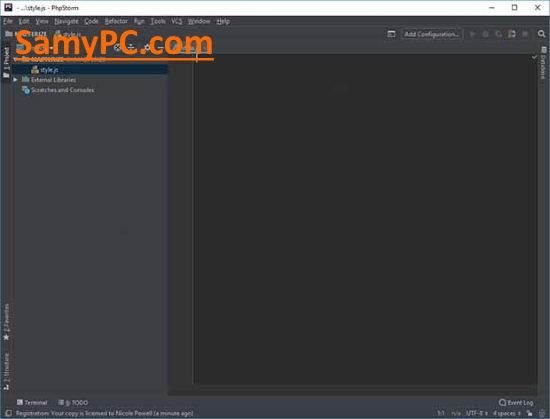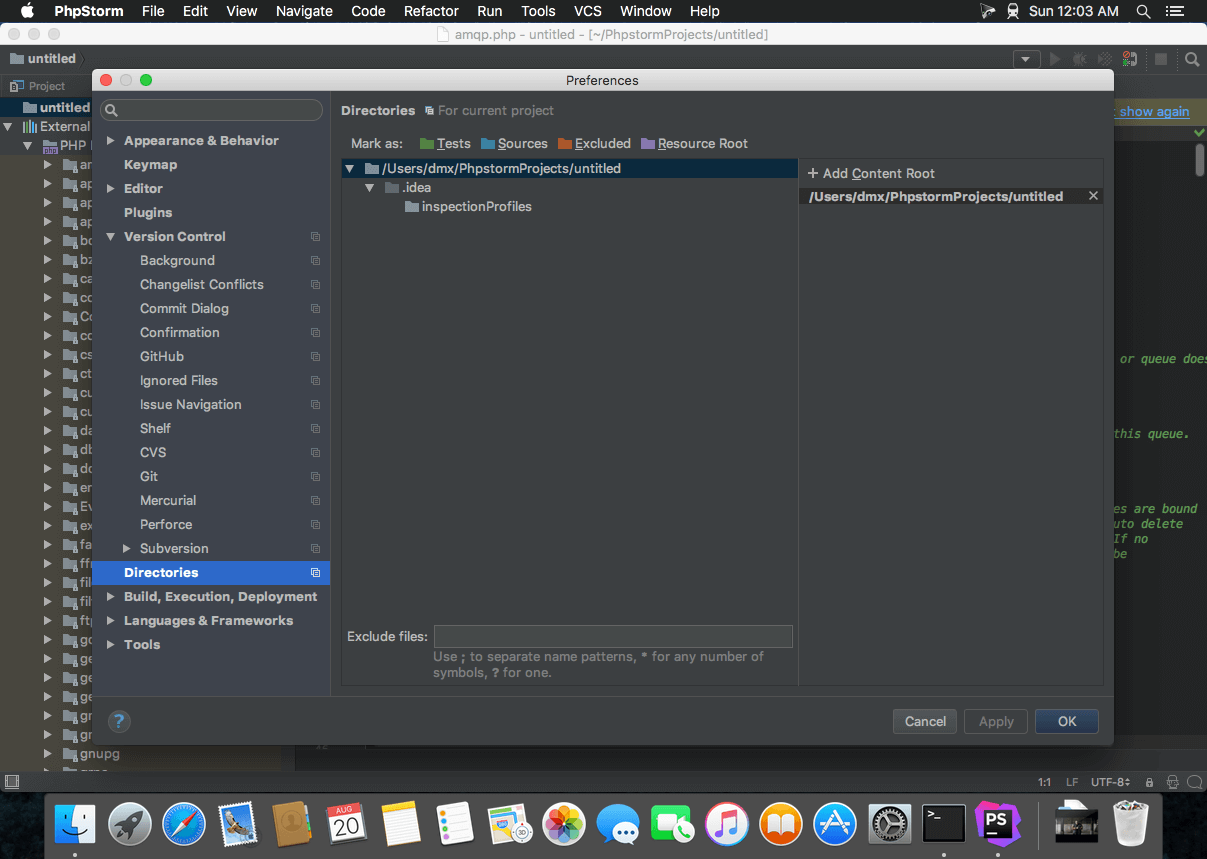


Learn more about bidirectional Unicode characters To review, open the file in an editor that reveals hidden Unicode characters. Revert changesįor most recent changes, including refactorings, press Ctrl+Z or choose Edit | Undo from the menu.įor a more detailed view of past changes, use Local History.įor the most robust tracking of all changes, use a version control system.This file contains bidirectional Unicode text that may be interpreted or compiled differently than what appears below. Once the necessary actions are enabled, they will be automatically triggered on every save (autosave or explicit save invoked with Ctrl+S or by selecting File | Save All) as you work with your project. You can also select whether to reformat the whole file or only modified lines. Hover the mouse pointer over the action and click Configure scope to exclude specific files and folders from reformatting.
#Jetbrains phpstorm autosave setting code
To do so, hover the mouse pointer over an action and click the configuration link.įor example, for code reformatting, you can specify files and folders that you don't want to change. Upload to default server: upload modified files to your default deployment server.Įnabling this option also enables Upload changed files automatically to the default server.įor some actions, you can configure the settings more precisely.

Run eslint -fix: fix the detected problems with ESlint.Įnabling this option also enables Run eslint -fix on save.įile Watcher: run your configured file watchers. Run code cleanup: batch-apply quick-fixes from code cleanup inspections in the current inspection profile. Rearrange code: reorder code elements according to your current code style settings. Optimize imports: remove unused imports and organize import statements according to your current code style settings. Reformat code: reformat your code according to your current code style settings. Select the checkboxes next to the actions that you want to trigger on save: In the Settings/Preferences dialog Ctrl+Alt+S, select Tools | Actions on Save. In PhpStorm, you can configure the actions that will be triggered every time your modified files are saved. Press Ctrl+S or select File | Save All from the main menu. You can always save your changes manually:

If you use version control integration, names of all modified files will be also marked with a dedicated color on the file tab and in the Project tool window. In the Settings/Preferences dialog Ctrl+Alt+S, select Editor | General | Editor Tabs.Īfter that, the tab of the file in which you have unsaved changes will be marked with an asterisk. You can mark unsaved files with an asterisk (*) on the file tab: Save files if the IDE is idle for N seconds: Save all modified files at regular time intervals. Save files when switching to a different application or a built-in terminal: Save all modified files when you switch from PhpStorm to a different application. Under Autosave, configure the following options: In the Settings/Preferences dialog Ctrl+Alt+S, select Appearance & Behavior | System Settings. Most of the events that trigger auto-save are predefined and cannot be configured, but you can be sure that changes will not be lost and you can find all of them in local history. Saving files can be also triggered by third-party plugins. Saving is triggered by various events, such as running, debugging, performing version control operations, closing a file or a project, or quitting the IDE. PhpStorm automatically saves changes that you make in your files.


 0 kommentar(er)
0 kommentar(er)
